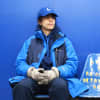Last week Hippos in Tanks released Brooklyn-via-Chicago duo Gatekeeper’s insane debut LP, Exo, a sharp and immersive album that the music equivalent of electrified blood and Ridley Scott's view of the early 22nd century, if the world makes it that far. Gatekeeper's album release party is this Friday, July 27th at Public Assembly in Brooklyn, with supporting sets by Total Freedom, James Ferraro, Yen Tech and Arca, plus venue-covering visuals by Thunder Horse FX and an 80-inch plasma screen play-through of the first-person video game Tabor Robak created for the album. Visionary on all fronts. Stream Exo here, and buy it here; below download two brand new remixes by Total Freedom and Gobby, and under those, read an interview with Gatekeeper's Aaron David Ross and Matthew Arkell on future-futurism, Android cell phone commercials and astrology.
Download: Gatekeeper, "Tree Drum (Total Freedom Remix)"
Download: Gatekeeper, "Tree Drum (Gobby Remix)"
I read that on your last EP, Giza, you had a technique of testing your music by playing it to movies on mute. Did you do that for Exo? ARKELL: When you’re staring at Logic, watching [the program] happen like a little roller coaster, it gets sort of boring. There are a few videos that we watched this time, but we had more of a mood board. ROSS: We had these huge folders of images, and we made double-monitor screen savers of Ken Burns effects for all of them. ARKELL: There was a pretty mutual feeling of mood or feeling. Sort of like the duality of organic material, like super HD biomechanical chrome, smoothed HD structures and other generic science fiction materials. ROSS: Also 3-D wallpaper art. A lot of the designs are deviantART style and wallpaper images. We actually made an initial collection of images at first and then Tabor showed us the mood boards for his game that he was generating and then we were like, Oh my god we have to use these instead. ARKELL: When we finished the album we did test it with Chronos, though, which was sort of funny and triumphant. We turned off all the lights in our apartment—we didn’t turn on the fog machine.
Does living together ever work against you, in terms of making music? ARKELL: We’re definitely like a married couple in some senses. We bicker a lot and we’ll fight a lot, but we’re always fighting in the session and in the studio. It’s always about trying to reach this better state with the material. ROSS: Having the studio at home means that studio time is equal to any other time and compounds everything into this kind of droning infinity. We got to a point where we didn't actually have to communicate about it. We knew that we were just going to work every night.
What's up with the video game? ARKELL: Video games seem like natural territory to move into or explore, especially now that it’s so easy to create environments like that. The music video is slightly exhausted. As a form it’s sort of just made the rounds. ROSS: The environment Tabor made is super vivid, super live. You don’t really have any control, and you’re just being washed around in it. We started talking about the concept before we started recording, and then Tabor was drawing maps and putting together collections of JPEGs that he found online that he liked and that were inspiring. He did work like that for months and we would send him everything. Once we got the lock on the final album, we started building and coding the actual thing, but a lot of work had already been done on it. ARKELL: He didn’t need much guiding; he understood the concept pretty well and sort of just did his own thing. We’ve only seen brief shots and play-throughs. Tabor is one of those people that will work on something right up until the last minute, which is a little bit stressful. But at the same time, he is a pretty amazing artist, so if his name is attached to something…
I feel like there was retro futurism on Giza and almost a future futurism on Exo. ARKELL: With Giza, it was very much like we were looking backwards, and then we got a little bit tired of that, so for Exo we were still looking backwards but then trying to slightly orient it in an unforeseen futuristic way. A lot of the sound design and samples on Exo were very 2000-sy. Droid commercials were an inspiration to us. We would both love to score a Droid commercial –just going to throw that out there. ROSS: Our fascination has always been with making time-portal music, something that would totally transport you out of where you currently are. With our first two EPs, they were portals into different recent genres, using tropes from ’80s and ’90s horror, sci-fi and fantasy. Whereas with this album there was not a specific place we were trying to travel to. The place grew out of us working on it.
Are you obsessed with the future outside of music? ARKELL: It's kind of fun to apply these slightly over-the-top conspiracy science fiction-infused ideas to the music, like what if global warming is just World War 4 being fought. We both read Discovery News and Wired and we have these fascinations with this HD culture and the progression of technology. ROSS: Constantly installing updates as soon as they’re available. ARKELL: I feel like the tone will always be the same because we are in the future now. We’re both a little bit into astrology and its nice to think about what if… ROSS: But it’s the candy kind. Its fun and tasty but its not a real approach.
What are your signs? ROSS: I’m an Aries, rising Gemini. ARKELL: I’m a Virgo and rising Aries. ROSS: We released our record during a Mercury retrograde cycle. ARKELL: That would explain some things.



